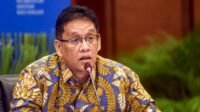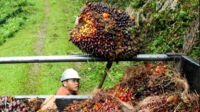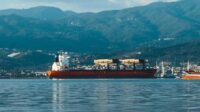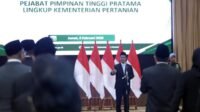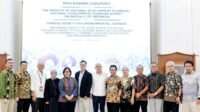PALMOILMAGAZINE, PETALING JAYA – The European Union’s decision to classify Malaysia as a “standard risk” country under its new European Union Deforestation Regulation (EUDR) has drawn strong protests from the Malaysian palm oil industry. Industry leaders warn that this classification could act as a non-tariff trade barrier, potentially jeopardizing Malaysia’s palm oil exports to Europe.
Datuk Carl Bek-Nielsen, Chairman of the Malaysian Palm Oil Council (MPOC), called the classification “grossly unfair and disappointing,” arguing that it fails to reflect Malaysia’s significant progress in reducing deforestation and implementing high sustainability standards in the palm oil sector.
“It’s like being fined for speeding when you’re actually driving below the limit. This is a slap in the face for an industry that, for the first time in over a century, has reduced its plantation area,” he said, as quoted by Palmoilmagazine.com via The Star on Tuesday (8 July 2025).
Also Read: Indonesian Deputy Foreign Minister Highlights Discriminatory Impact of EUDR on Small Farmers
Bek-Nielsen warned that being labeled as “standard” or “high” risk could trigger stricter compliance obligations and heavier administrative burdens for Malaysian exporters seeking entry into the EU market.
“Producers from these countries will face higher compliance costs under the stringent EUDR framework and increased scrutiny by European authorities,” he added.
According to the European Commission, EUDR risk classification is based on metrics such as deforestation rates, forest degradation, agricultural land expansion, and commodity production trends. However, Bek-Nielsen argues that these assessments don’t reflect on-the-ground realities, especially Malaysia’s long-standing commitment to sustainable land management.
Serious Impact on Smallholders
Echoing similar concerns, Roslin Azmy Hassan, CEO of the Malaysian Palm Oil Association (MPOA), said the EUDR could become a non-tariff trade barrier that disproportionately harms commodity-producing countries in the Global South—especially smallholder farmers.
“For Malaysia, this could mean smallholders are pushed out of the EU market, despite their compliance with national standards like the Malaysian Sustainable Palm Oil (MSPO) certification,” Roslin said.
He noted that penalizing countries without recognizing their sustainability efforts threatens smallholder livelihoods and undermines broader economic development goals. There are also concerns that European importers and processors may turn away from Malaysia in favor of “low-risk” countries to avoid compliance headaches.
Roslin emphasized that the classification does not reflect Malaysia’s genuine forest conservation efforts. Since the 1992 Earth Summit in Rio, Malaysia has committed to maintaining at least 50% of its land area as forest cover, a pledge that still holds today.
He also questioned the integrity of the EUDR classification system, pointing out that some EU member states with historical deforestation records were placed in the “low risk” category.
“This raises serious concerns about the objectivity and transparency of the EUDR framework. It gives the impression of bias and reinforces the perception that the regulation is a discriminatory tool aimed at palm oil,” Roslin asserted.
Despite Malaysia’s active participation in consultation platforms such as the EU-Malaysia Joint Task Force, Roslin said little progress has been made. Many of these dialogues, he claims, have turned into mere formalities with no meaningful policy outcomes.
“Often these discussions become ceremonial, lacking real results or sincere collaboration. This casts serious doubt on the integrity of the EUDR consultative process. The regulation is not just a technical flaw—it reflects discriminatory trade policy targeting palm oil while turning a blind eye to similar issues elsewhere,” he said.
Government Seeks Clarification from EU
On the government side, Malaysia’s Deputy Minister of Plantation and Commodities, Datuk Chan Foong Hin, announced that the administration will formally request clarification from the European Commission regarding the methodology used for the risk classification.
This step marks Malaysia’s official objection and a diplomatic push to defend its palm oil sector amid increasingly complex global trade rules. (P2)



